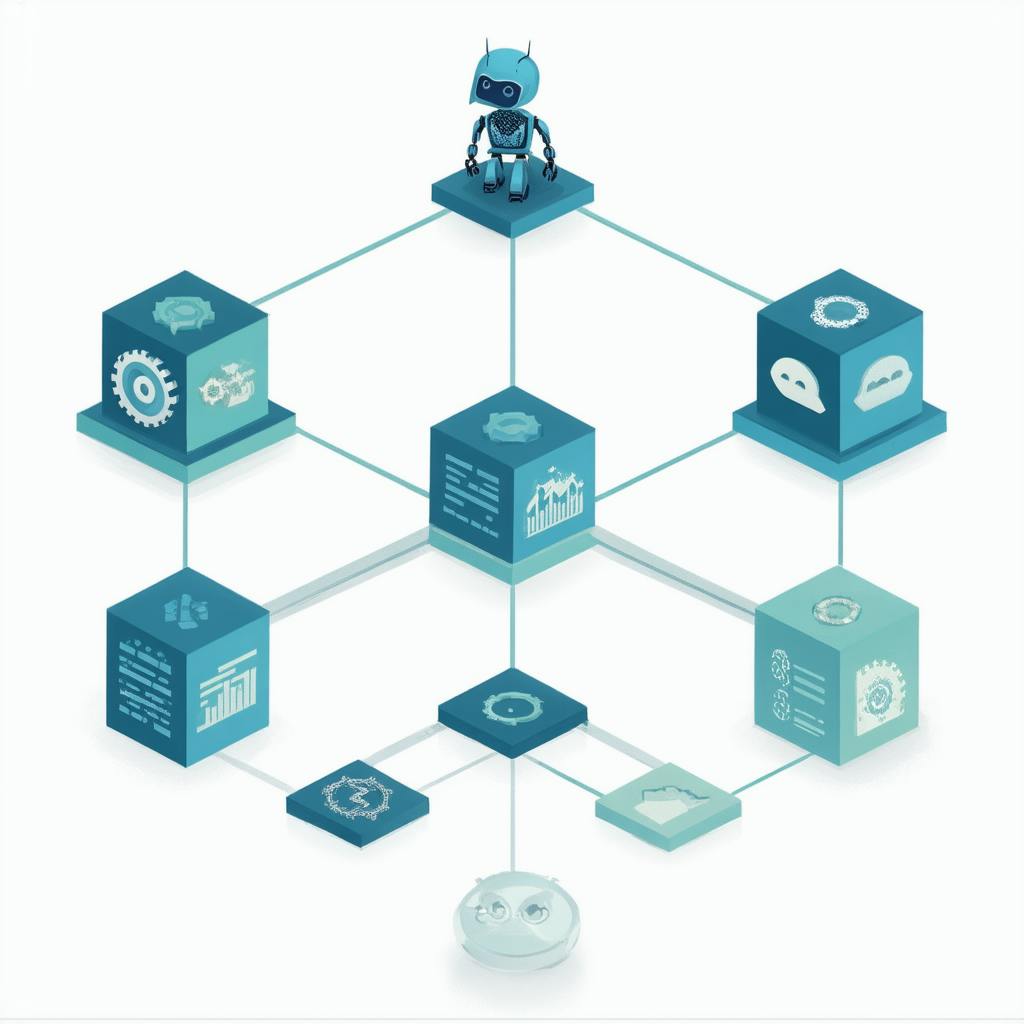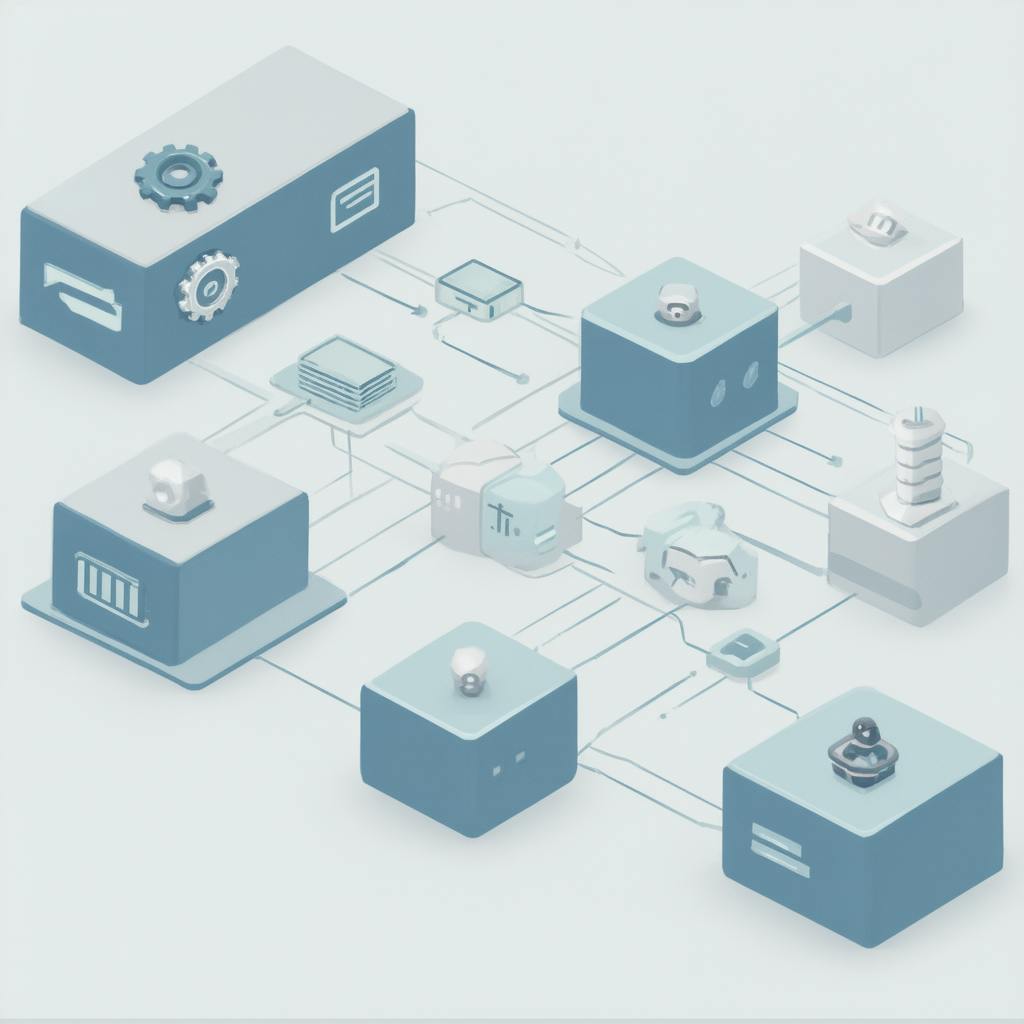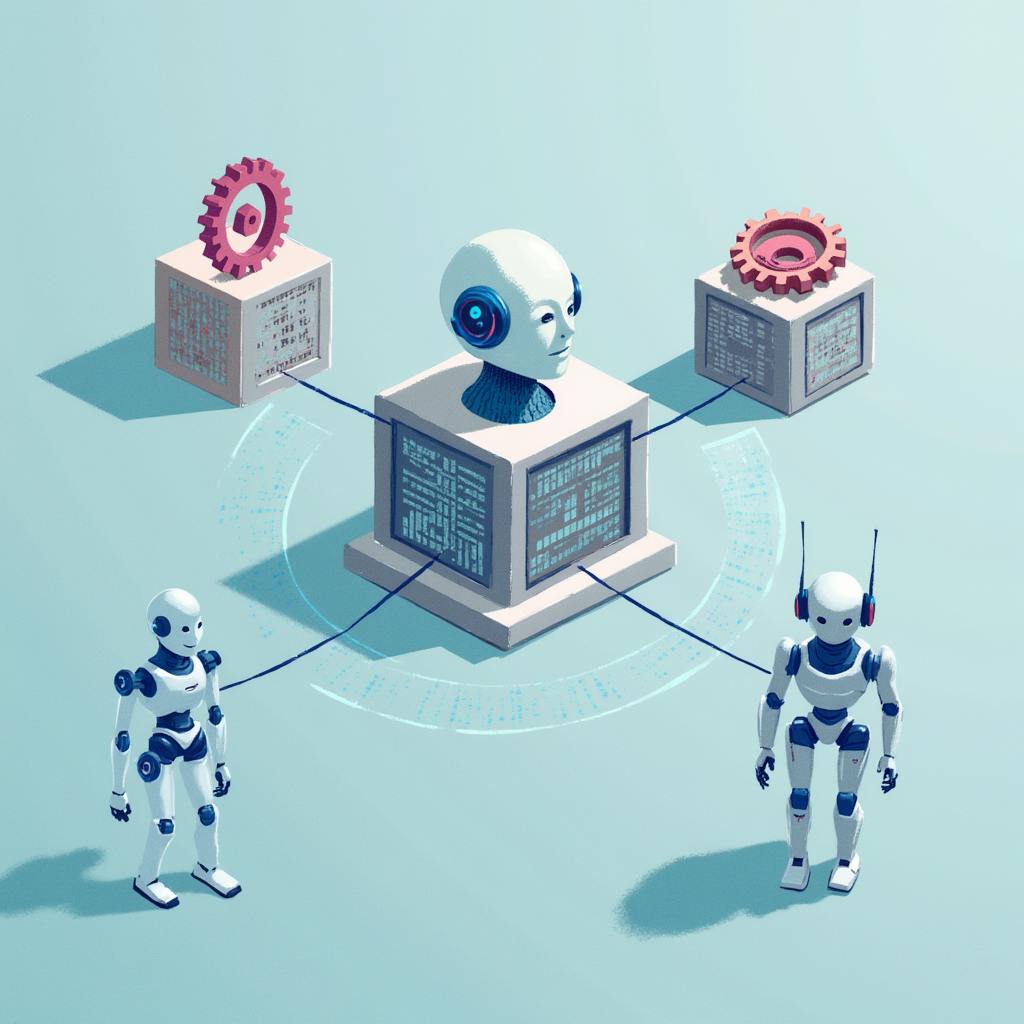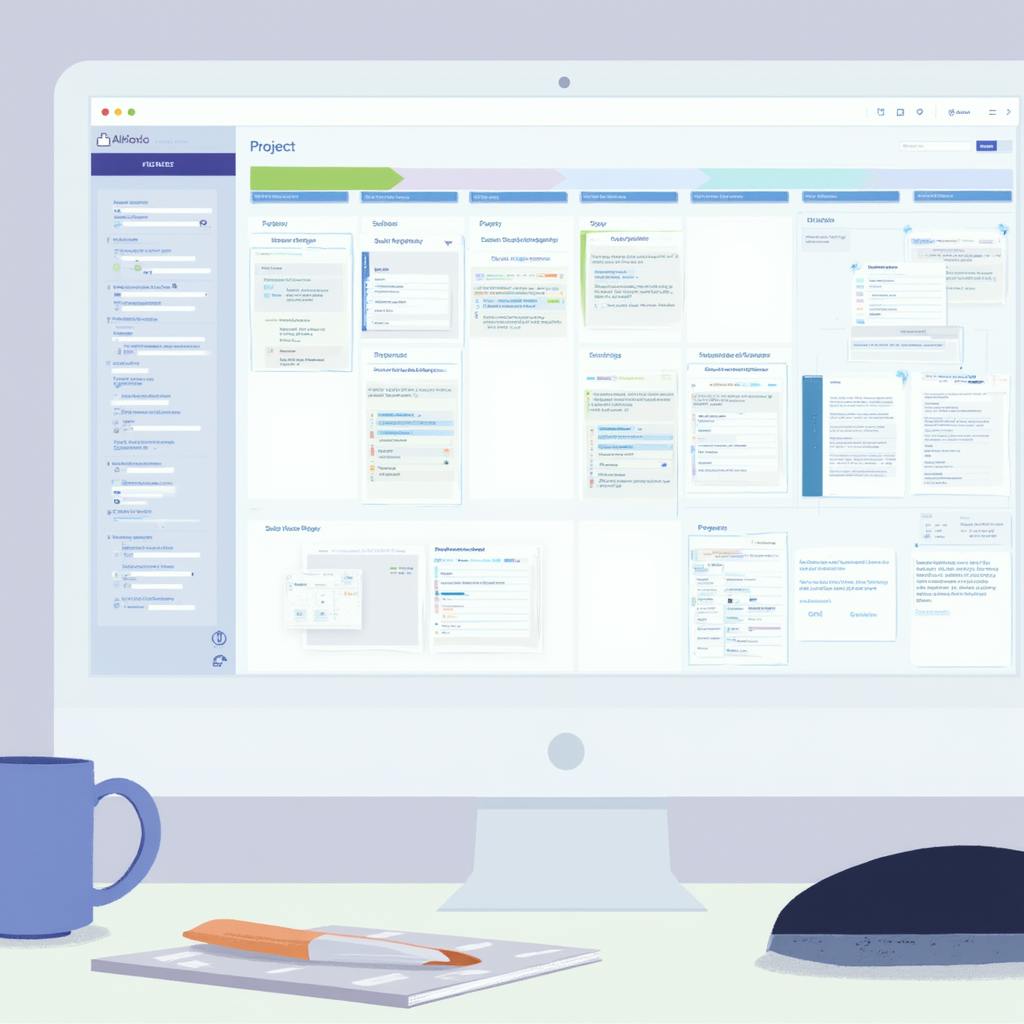In the dynamic world of artificial intelligence, AI agent frameworks have emerged as fundamental components driving the development of intelligent systems. These frameworks provide the essential structure through which AI agents operate to automate tasks, make decisions, and interact with other systems, effectively serving as the backbone of smart automation. Whether you're a practitioner in the field or simply an enthusiast seeking clarity, understanding these frameworks is crucial. In this article, we'll explore the concept of AI agent frameworks, what constitutes an agentic AI framework, and delve into frequently asked questions regarding their functionalities and applications.
What is an AI Agent Framework?
An AI agent framework is an architectural setup that simplifies the development, deployment, and management of AI agents. These frameworks offer a structured environment where various AI components—such as perception, reasoning, and action—are integrated to create cohesive and functional AI systems. By providing a set of tools and libraries, AI agent frameworks enable developers to build customized agents capable of performing specific tasks or solving complex problems autonomously.
Key Components of AI Agent Frameworks
- Perception and Sensors: An AI agent relies on sensors to perceive its environment. These sensors can include cameras, microphones, and temperature gauges, among others, which capture data that the agent processes to understand the context in which it operates.
- Reasoning and Decision-Making: Central to any AI agent framework is the reasoning component. This involves algorithms and models that enable the agent to process information, draw inferences, and make decisions. Techniques such as machine learning, neural networks, and rule-based systems are often employed to facilitate this aspect.
- Actuators and Actions: Once decisions are made, AI agents need to take actions. Actuators are the tools used by agents to interact with their environment. In robotics, this could mean moving parts or sending commands to other systems in software applications.
- Learning and Adaptation: A robust AI agent framework supports learning, where agents improve their performance over time. This can be achieved through reinforcement learning or other machine learning techniques that allow agents to adapt to new scenarios and improve their decision-making processes.

AI made with Dean Jones
What Constitutes an Agentic AI Framework?
An agentic AI framework focuses on the agency of the AI, emphasizing autonomy and the ability to perform tasks without human intervention. What makes an AI framework agentic is its capabilities in:
- Autonomy: The ability of an AI agent to perform tasks independently.
- Reactivity: Responsiveness to changes in the environment in real-time.
- Proactivity: The capacity to take initiative based on predictive models and historical data.
- Social Ability: The capability of collaborating and interacting with other agents or humans.
Frequently Asked Questions
What are some popular AI agent frameworks?
Several renowned AI frameworks facilitate agent-based design and deployment. These include Google's TensorFlow Agents, Microsoft's Bonsai, OpenAI's Gym, and IBM's Agent Building and Learning Environment (ABLE). Each offers unique features tailored to different AI development needs.
How do AI agent frameworks impact smart automation?
AI agent frameworks play a pivotal role in smart automation by encapsulating complex AI functions into modular components that can seamlessly automate tasks across industries. From streamlining manufacturing processes to enhancing customer service through chatbots, their applications are vast and transformative.
How to choose the right AI agent framework?
Choosing the right AI agent framework depends on your specific needs, such as scalability requirements, ease of integration, and the complexity of the tasks at hand. Evaluating the framework's compatibility with current technologies and future adaptability is also integral to making an informed choice.
Frequently Asked Questions about AI Agent Frameworks
What are AI agent frameworks and how do they function?
AI agent frameworks are software environments or libraries designed for the development and implementation of intelligent agents. These agents are autonomous programs that perceive their environment, make decisions, and act independently to achieve specific goals. AI agent frameworks provide the necessary tools, components, and sometimes predefined models that simplify the process of creating intelligent agents by offering:
- Environment Abstraction: They provide an abstract representation of the environment, allowing agents to interact seamlessly with real-world data and scenarios.
- Perception and Action Mechanisms: These frameworks often include built-in components for perception (i.e., processing input data from various sensors or APIs) and action (i.e., effecting changes in the environment).
- Decision-Making Algorithms: They integrate various decision-making algorithms, such as rule-based systems, machine learning models, or heuristic approaches, that allow agents to choose the best course of action.
- Communication Tools: Some frameworks offer communication protocols or APIs that enable collaboration or negotiation between multiple agents.
Essentially, AI agent frameworks function like a blueprint, guiding developers in building agents that encapsulate capabilities such as reasoning, learning, problem-solving, andinteracting with other agents or systems.
How are AI agent frameworks integral to smart automation?
AI agent frameworks are crucial in smart automation due to their ability to create sophisticated, adaptive, and self-sufficient systems. Here's how they contribute to smart automation:
- Scalability: They allow for the deployment of multiple agents working in coordination, leading to scalable and distributed automation solutions that can grow with business needs.
- Adaptiveness: AI agents built on these frameworks can learn from data and improve their decision-making over time, enhancing the adaptability of automated systems in dynamic environments.
- Efficiency: By automating complex decision processes, AI agents reduce reliance on human intervention, thereby increasing the efficiency and speed of operations.
- Resilience and Flexibility: AI agents can quickly adjust to interruptions or changes in their environment, maintaining operational continuity and flexibility.
In summary, AI agent frameworks provide the architecture needed to develop systems that not only perform tasks autonomously but do so intelligently, learning and evolving in response to new data and circumstances.

AI made with Dean Jones
What are some examples of AI agent frameworks used in smart automation?
Several AI agent frameworks are widely used in smart automation, each offering different features and capabilities tailored for specific use cases:
- JADE (Java Agent Development Framework): JADE is a popular open-source framework for developing multi-agent systems using Java. It simplifies the creation of distributed agents and facilitates communication via the FIPA-standard agent communication language.
- Microsoft Bot Framework: Primarily used for building chatbots, this framework allows developers to create intelligent conversational agents that can interact with users across various messaging channels.
- TensorFlow Agents (TF-Agents): Developed by Google, this is a library for reinforcement learning in TensorFlow, suitable for building agents that learn optimal strategies through trial and error.
- ROS (Robot Operating System): This framework is popular in robotics applications, providing the tools for developing robot software, including components for perception, control, and navigation.
- OpenAI Gym and Baselines: These are widely used for developing reinforcement learning algorithms, providing a rich set of environments and standardized interfaces for experimenting with AI agents.
These frameworks support a diverse range of applications in smart automation, from industrial robots and autonomous vehicles to customer service chatbots and intelligent decision support systems.
What are the key features and benefits of using AI agent frameworks in automation projects?
AI agent frameworks offer several key features and benefits that enhance automation projects:
- Modularity: They provide modular design, allowing developers to reuse and extend components efficiently. This modularity leads to faster development cycles and easier maintenance.
- Interoperability: Many frameworks support standardized communication protocols that ensure seamless integration of agents within a larger system, enabling collaborative multi-agent solutions.
- Robustness and Fault Tolerance: By employing frameworks' built-in mechanisms for error handling and recovery, agents gain robustness against disruptions.
- Rapid Prototyping: These frameworks facilitate rapid prototyping and experimentation with different algorithms and architectures, accelerating the development process.
- Ease of Use: Comprehensive documentation, community support, and libraries of pre-built components minimize the learning curve and make it easier for developers to implement complex functionalities.
The benefits of using AI agent frameworks in automation projects are vast, including reduced development time, improved performance, scalability, and the ability to build innovative solutions that leverage the latest advancements in artificial intelligence.
Conclusion
AI agent frameworks are indispensable in the realm of artificial intelligence, offering the structural foundation necessary for building smart, autonomous systems. By understanding these frameworks and recognizing their components and functionalities, developers and businesses alike can harness the full potential of AI to drive innovation and efficiency. As we continue to integrate AI into our daily lives, the role of AI agent frameworks in enabling smart automation will undoubtedly expand, solidifying their place as vital instruments in the technological toolkit.

